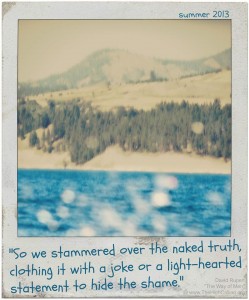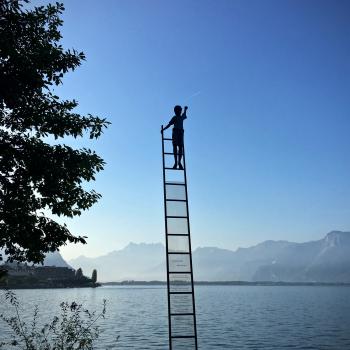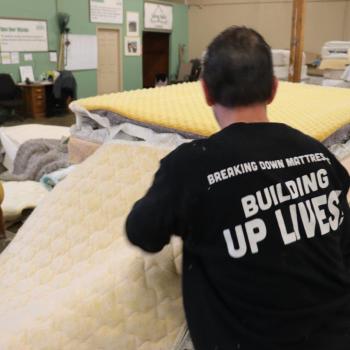
The 4 a.m. wake-up call was early. Too early. But for three men on the hunt for fish, it was a small price to pay.
The dock still carried the smell of the previous day’s catch. “Call me Fredrik,” the captain said gruffly. He carried not an ounce of charm, but that didn’t matter. It was his job to have a swagger and confidence—a good thing for a man who made his living shuttling inlanders out into the ocean.
We hopped into the small, sturdy boat and Fredrik cut through the water into the darkness. The old Finn knew what he was doing. I could see it in his eyes painted the same green as the foam that laces the edge of the rushing waves. His hands were rough from spooling rope over the dock ties and tying down gear in the middle of countless storms. I could hear it in his voice—rough like the rumble of the diesel engine below the deck.
On one side sat my eldest son, catching up on the sleep he had missed out on this early morning cruise. On the other side was my youngest, fingering the spool of 20-pound test line. I call them boys, but they are now men with careers and mortgages and increasingly expensive toys. Together we were in pursuit of the fabled Pacific salmon as they swam their way from the salted sea into the fresh water of the mighty Columbia—a journey of death that more than a million fish will take just to drop a few red eggs in the river’s mud.
Dawn came with little fanfare. It was foggy and the dark sky stealthily eased its way into daylight. It was an hour out to the fishing spot, so I sat back and took in the view. But at some point the sway and dip of the boat telegraphed into my inner ear. From there, a signal was sent to my stomach, threatening the early morning cargo of sugar doughnuts and strong coffee.
Don’t look away
My “gills turned green” as the seamen call it, and I tried to take deeper gulps of air, hoping to somehow neutralize the queasiness. I didn’t want my sons to see my condition, eluding the shameful “chicken of the sea” label. But I couldn’t avoid the captain’s gaze. He had seen my kind:flatlander-wannabe-sealubber. He looked at my ashen face and pointed a finger toward the water. “Look at the horizon.”
I did.
“Keep looking. Pick a point out there and don’t look away,” he advised. “And don’t throw up in my boat.”
I found a distant house on the Washington shoreline. And after a while, the internal gyroscope leveled out and I felt better. We caught lots of fish in the next couple of hours, but there was down time, too, that led to idle conversation about weather, boats, and sports.
Occasionally, the chatter would fall into deeper waters as we spoke about relationships, life or God. We’d start talking about these subjects, almost stumbling into them by accident. And then as men often do, one of us would change the conversation’s course when the waters became uncertain.
The Way of Men
The three of us have endured choppy water. We’ve lost friends and been disappointed by others. We’ve seen love walk away – and the come back in surprising ways. The injuries have usually been caused by our own mix of pride and fear that hardened the hearts of others. It’s not easy to talk about these things. So we stammered over the naked truth, clothing it with a joke or a light-hearted statement to hide the shame.
We men will march through minefields for the cause of freedom, snatch children from certain danger, and plunge into frigid cold waters just to rescue a lost dog. But we’ll abandon a conversation in a moment when it becomes the slightest bit uncomfortable.
However, it’s easy for us to talk about the future, about the great expectations that tomorrow holds. We gravitate to the hope of God, who promises steadiness to those who will only trust Him. To pick a goal, a desire, or a destiny and to focus on it might seem a cop-out, but it keeps us afloat through rough waters. It keeps us from helplessly leaning over the side of the boat.
That’s the way of the ancient mariners, who sought out landmarks, lighthouses, and distant stars to lead them. That’s the way of the prophets and the fathers of the faith, who spoke of promised lands and kingdom comes. Tomorrow comes to us easier than today. I can’t explain it, but this is the way of men.













